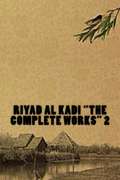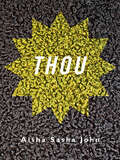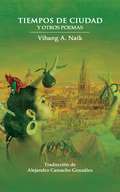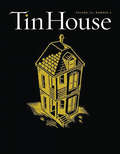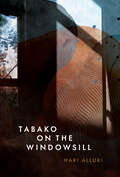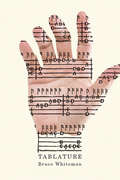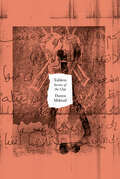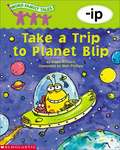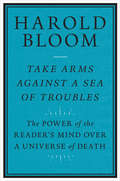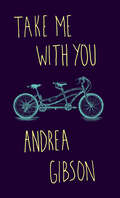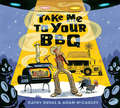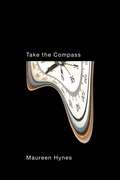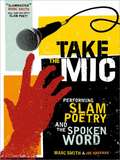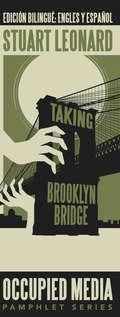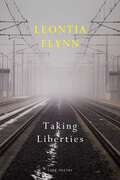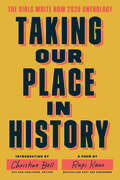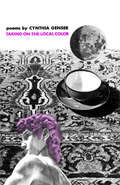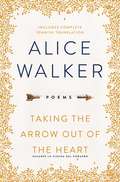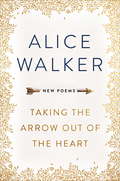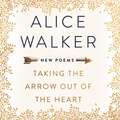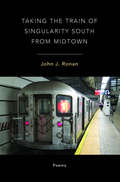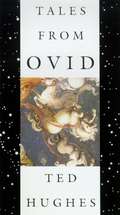- Table View
- List View
THE COMPLETE WORKS 2: Riyad Al Kadi
by Riyad Al Kadi Mahmoud AbdulbaseerThi is the second volume of the completes works of Riyad Al Kadi. It contains poems about love and other related themes.
THE ONE AND THE MANY
by Rabindranath Tagore Ketaki Kushari Dyson William Radice John BerridgeThis elegant volume of Tagore's poems, translated, is copiously illustrated by colour photographs from John Berridge, Professor of Religion at Xavier University, Antigonish, Canada. William Radice, who has translated Tagore for years, is a Professor at the School of Oriental and African Studies at the University of London. He is also a poet in his own right. The second translator, Ketaki Kushari Dyson, was born in Calcutta in 1940 and educated at Calcutta and Oxford. In 1963 she became the first Indian woman to gain a First in English Literature at Oxford. She also has a doctorate from Oxford. Based in Britain since her marriage to an Englishman, she maintains close links with the literary life of her native city and is regarded as a significant Bengali writer of her generation.
THOU
by Aisha Sasha JohnIn THOU, Aisha Sasha John knows the day – biblically. What if time itself was an object of desire? And the book was a theatre for that? Aisha Sasha John has a crush on time. Which is why she discipled in it. For three years. Also for three months. Also for three months at 33. Ya. Aisha Sasha John has a crush on time and discipled in time, moving it across her body, watching it, um, course the day. She slowed it down and thought along it, she cut it up. She slowed it down and thunk along it and sped it up. She cut it up and spaced it out and rhythmed it down and laid it flat and looked at it hard. Aisha Sasha John has a crush on time. She did it. She did time. It was gross and funny and it was hard and it was good. The result is/was – THOU.
TIEMPOS DE CIUDAD Y OTROS POEMAS
by Vihang A. Naik Alejandro Camacho GonzálezVihang A. Naik arroja luz sobre la vida de una ciudad inmersa en sombras, gloria y miseria en Tiempos de ciudad y otros poemas. Se trata de una antología con sus poemas más intuitivos y filosóficos, dividida en seis partes: Canción de amor de un viajero es casi un cuaderno de bitácora; Hombres reflejados transciende las quimeras de la ciudad, en la que las gentes son volubles como el caminar de un cangrejo o los colores de un camaleón; El sendero de la sabiduría comprende los inicios de la meditación y el conocimiento; En la orilla recoge las sensaciones de futilidad, recuerdos, dolor, exilio y alienación del poeta en la orilla de la vida. El título de esta colección alude también a la última sección del poemario, en el que la ciudad se despliega como un mercado, como un cielo para los desalmados, como aljófares de cambio, y es observada en la penumbra, a medianoche, bajo la luz de la luna y a través del vaho y la niebla El poema "Autorretrato" comienza con un bosquejo esquemático, incluyendo siete páginas en blanco, donde el lector encuentra unas palabras sobre el final del poema. Aquí, el poeta visualiza, en un momento de epifanía, la verdadera naturaleza del yo cuando despierta y ve su "yo/ revelado más allá del pensamiento". Entre "Yo¨" y "revelado más allá del pensamiento" hay 5 páginas en blanco. La inefable epifanía de lo ambiguo. Puede sugerir el descubrimiento de un yo transcendental allende todo pensamiento y lenguaje, o quizás el descubrimiento de una Ausencia lejos del habla y pensamiento humanos. Reseñas: "La lectura de Tiempos de ciudad y otros poemas es una experiencia embriagadora y reveladora" - Readers' Favorite "Apuntando hacia la filosofía, incluso aspectos existenciales, estos versos amigos de lo ajeno dejan demasiado en lo no dicho." - Kirkus Reviews "Una obra recomendable y única." - Cate Baum
Tabako on the Windowsill
by Hari AlluriAn altar is a door; wonder is the key.What losses and intimacies bring you to this threshold? Tabako on the Windowsill contends tenderly with such questions, initiating through them the work of transformation. To shape an entire book around portals and thresholds is to search for living myth. Hari Alluri’s poems build from comic books, television, paintings, folklore, music, and a unique imagination. Following an immigrant point of view while maintaining home in a language that engages with blood and chosen family, Alluri offers multiple lived and ancestral spacesin India, the Philippines, Nigeria, the U.S., and Canada. Guided by a burning attention – to braids of displacement, loss, and joy, to multiple beginnings – Alluri creates moments where we can expand through the personhood of perception into wider, overlapping worlds of perspective and possibility.
Tablature
by Bruce WhitemanFrom the "rubble [that] is the order of the day" in the opening poem to the longing for a "radiant happy ending" in the book's final line, Tablature is a book of poems that traverses a great swath of the heart's experience in compelling and lucid poetic language. Bruce Whiteman's first book of poems in traditional lined form in thirty years is by turns learned and allusive, and emotionally expressive and despairing. These poems engage three large and powerful subjects: the landscapes we see and abide in, music that is comforting and a guide to hearing the poem's compulsions, and love - erotic, domestic, and enduring. Whiteman is keenly observant of the natural world of birds and trees, of rocks and water, alive to the pressures and hurts of daily life, and above all to the ways in which music rescues us from dependency and pulls us back from a "cultivated hysteria. " If there is an "intimate / apocalypse," there is also "radiant hope. " The poems in Tablature capture readers with their singular music and their bright and unblinking takes on the quotidian challenges of living a life. These are poems of a highly tuned sensibility matched by a sweetness of language.
Tablature (Hugh MacLennan Poetry Series #31)
by Bruce WhitemanFrom the "rubble [that] is the order of the day" in the opening poem to the longing for a "radiant happy ending" in the book's final line, Tablature is a book of poems that traverses a great swath of the heart's experience in compelling and lucid poetic language. Bruce Whiteman's first book of poems in traditional lined form in thirty years is by turns learned and allusive, and emotionally expressive and despairing. These poems engage three large and powerful subjects: the landscapes we see and abide in, music that is comforting and a guide to hearing the poem's compulsions, and love - erotic, domestic, and enduring. Whiteman is keenly observant of the natural world of birds and trees, of rocks and water, alive to the pressures and hurts of daily life, and above all to the ways in which music rescues us from dependency and pulls us back from a "cultivated hysteria." If there is an "intimate / apocalypse," there is also "radiant hope." The poems in Tablature capture readers with their singular music and their bright and unblinking takes on the quotidian challenges of living a life. These are poems of a highly tuned sensibility matched by a sweetness of language.
Tablets: Secrets Of The Clay
by Dunya MikhailA gorgeous fusion of poetry and image by “one of the foremost poets of our time” (The Christian Science Monitor). “A bullet / then a siren / then ruins / then a bird song telling the truth”—Dunya Mikhail In her marvelous new poetry collection Tablets: Secrets of the Clay, Dunya Mikhail transforms the world’s first symbols—Sumerian glyphs that were carved onto clay tablets—into the matter of our everyday contemporary life. Each of the ten sections in her book is composed of twenty-four short poems, and each poem combines both text and drawing. In her note to the collection, Mikhail writes, “I practiced at least two layers of translation in these tablets: the first from words in one language, Arabic, to another, English; and the second from words to images. What I received from my ancestors are offerings of the future rather than of the past. Now it’s my turn to offer them to you.”
Take A Trip To Planet Blip (Word Family Tales™ -ip)
by Kama Einhorn Matt PhillipsJump in our spaceship and take a trip--all the way to planet Blip! You'll giggle at the wacky way of life on this out-of-this-world planet! WORD FAMILY TALESTM are humorous read-aloud stories created to build early phonics skills by teaching children to recognize "families" of words that share the same spelling pattern. This key reading strategy helps kids decode new words with ease--and become stronger readers, writers, and spellers. Set learners on the path to literacy success with these rib-tickling tales--one for each of the top 25 word families!
Take Arms against a Sea of Troubles: The Power of the Reader's Mind over a Universe of Death
by Harold Bloom&“The great poems, plays, novels, stories teach us how to go on living. . . . Your own mistakes, accidents, failures at otherness beat you down. Rise up at dawn and read something that matters as soon as you can.&” So Harold Bloom, the most famous literary critic of his generation, exhorts readers of his last book; one that praises the sustaining power of poetry. "Passionate. . . . Perhaps Bloom&’s most personal work, this is a fitting last testament to one of America&’s leading twentieth-century literary minds."—Publishers Weekly This dazzling celebration of the power of poetry to sublimate death—completed weeks before Harold Bloom died—shows how literature renews life amid what Milton called &“a universe of death.&” Bloom reads as a way of taking arms against the sea of life&’s troubles, taking readers on a grand tour of the poetic voices that have haunted him through a lifetime of reading. &“High literature,&” he writes, &“is a saving lie against time, loss of individuality, premature death.&” In passages of breathtaking intimacy, we see him awake late at night, reciting lines from Dante, Shakespeare, Milton, Montaigne, Blake, Wordsworth, Hart Crane, Jay Wright, and many others. He feels himself &“edged by nothingness,&” uncomprehending, but still sustained by reading. Generous and clear‑eyed, this is among Harold Bloom&’s most ambitious and most moving books.
Take Me With You
by Andrea GibsonFor readers of Rupi Kaur (Milk and Honey) and Cheryl Strayed, a book small enough to carry with you, with messages big enough to stay with you, from one of the most quotable and influential poets of our time. <P><P>Andrea Gibson explores themes of love, gender, politics, sexuality, family, and forgiveness with stunning imagery and a fierce willingness to delve into the exploration of what it means to heal and to be different in this strange age. Take Me With You, illustrated throughout with evocative line drawings by Sarah J. Coleman, is small enough to fit in your bag, with messages that are big enough to wake even the sleepiest heart. Divided into three sections (love, the world, and becoming) of one liners, couplets, greatest hits phrases, and longer form poems, it has something for everyone, and will be placed in stockings, lockers, and the hands of anyone who could use its wisdom.
Take Me to Your BBQ (Hyperion Picture Book (eBook))
by Kathy DuvalAliens have landed on Willy's farm, and they're not leaving without a square dance and a square meal! So fire up that grill, lay on the barbeque sauce, and snatch up that fiddle. Told in verse, this rollicking story puts a twist on the typical encounter with the third kind. Adam McCauley's out-of-this-world illustrations match Kathy Duval's hoe-down rhymes like ribs and taters! Get ready for some extraterrestrial, lip-smacking fun.
Take the Compass (Hugh MacLennan Poetry Series #79)
by Maureen Hynestake the harp, take / the Fitbit and the Band-Aid box. Fold the whole / grey sheet of sky, lumpy and unalluring / into your rucksack.A strong theme of journeys is threaded through Take the Compass. In a sense, every poem is itself a journey – into the past or the present, or toward what we hope and fear for the future. Poems can be journeys of repair and recovery, adventure and discovery. However, even in pandemic times when our journeying is curtailed, or at least confined, when we are abiding in one physical location with chafing and restiveness, we are still travelling. One of those journeys is discovering where language can take us.Maureen Hynes’s poems travel through cities and their outskirts to rivers, forests, and graveyards. They travel in time into the troubled present, across decades into early childhood, and into our perilous collective futures, seeking guides for these explorations. The title poem addresses the search for tools and instruments that will “ward off adversity” – tools to help us move forward to our chosen destinations. Take the Compass calls on art and nature as invisible helpers, and on uncountable things – personal values and traits such as courage – to “break the bad news into nine living petals.”As with all her collections, Hynes shows a commitment to social justice, to acknowledging historical and contemporary inequities, to the search for sources of remedy, repair, and renewal, and to the sustaining power of love. The variety of poetic forms she has chosen lets this search carry the complexity and seriousness of its themes.
Take the Mic
by Marc Kelly Smith Joe KraynakTake the Mic is filled with insider tips, backstage advice, and tons of examples of slam poems that wake up an audience. With this book, you'll also be able to link to the PoetrySpeaks.com community to listen to samples, meet poets, and unearth inspirations for your next performance.
Taking Brooklyn Bridge
by Stuart Leonard"Brilliant . . . its beauty, power, flow and deep truth knocked me. . . . I got chills."--Mumia Abu Jamal Taking Brooklyn Bridge is a poem about the struggle for liberty and the search for true democracy and redemption. Addressed to Walt Whitman and composed in the cadence and style of "Crossing Brooklyn Ferry," the poem tells the story of the personal and political awakening experienced while participating in a march across the Brooklyn Bridge. Stuart Leonard has been in the New York City poetry scene for decades.
Taking Liberties: ‘Everyone should be reading her’ Observer
by Leontia FlynnA collection about motherhood at a time of continuous crisis - from one of Ireland's most important poets'Everyone should be reading her' OBSERVER'One of the most accomplished poets of her generation'GUARDIANThese poems emerge from the experience of being a single mother in Belfast, and against a background of seemingly continuous crisis. Political upheaval and anxiety, violence and death are all registered in these poems, which ask questions about where independence is balanced by our relationships with others, and where our inner lives meet the globally connected world.These are poems about cities - living, travelling and working in cities, getting sick and dying in cities - but also about retreating from all that: to her daughter at home, the budgie, cat and tortoise, or escaping to the park, the municipal pool, the Irish countryside, Newfoundland, or Paris, or into a Nina Simone song.This is a necessary book - a book very much of our time - with a consistent tone that is brave and bleak, but which also carries with it some much-needed humour, and a wealth of beautiful writing.
Taking Our Place in History: The Girls Write Now 2020 Anthology
by Girls Write NowThe award-winning annual anthology from New York City’s first and only writing and mentoring organization for girls and gender-expansive teens. <p><p> What is it like growing up in New York City as a teen in 2020? This book invites you into their homes and families, their schools and neighborhoods, their hearts, hopes, and fears. Enter a world where clay creatures take on aluminum oppressors. Get thrown against an elevator wall in the midst of a horror story. Go backstage with a rock band, say goodbye to relatives as you start a new life, stand with an engineer solving a coding problem. Experience tragedy in a mosque, feel the wounds of slavery, know the terror of glass shattering in a World War II village, and see how this next generation of leaders looks to the past and writes a better future for us all. <p><p> For more than two decades, the nationally award-winning nonprofit Girls Write Now has broken down the barriers of gender, race, age, and poverty, elevating the voices of writers who are too often not heard—or worse, silenced. With mentors by their sides, the girls and gender-nonconforming youth tackle climate change, racism, sexism, rejection, immigration, and friendship—and take their place in history. This book is their testament.
Taking on the Local Color: Poems (Wesleyan Poetry Program)
by Cynthia GenserCynthia Genser's landscapes, like those of D.H. Lawrence, are analogues of human emotions; her men and women exist in their effects-prototypes one minute, passionate and distinctly visible individuals the next. Person and place invite the reader into an adventure that begins and ends everywhere.The language employed throughout is voluptuous, sensuous, yet precise. The appeal is to all the senses as well as to reason and intelligence: the poems, seamed with a difficult, sweaty beauty, stimulate every pleasure center. But pure language play also leads to hard, intelligent sense.Of her own work, Cynthia Genser has said, "Although I belong to no special school or group, I align my poetry with the work of others aiming their metaphors at the banality and reductionism of our world-at the terror or planned obsolescence, Vogue Magazine, the threat of nuclear warfare. I cannot agree more with the Marxist Henri Lefebvre that poetry is the enemy and eventual victor in the war against 'terrorism' and the terrorist society we now live in."
Taking the Arrow Out of the Heart
by Alice WalkerAlice Walker, author of the National Book Award and Pulitzer Prize-winning The Color Purple—“an American novel of permanent importance” (San Francisco Chronicle)—crafts a bilingual collection that is both playfully imaginative and intensely moving.Presented in both English and Spanish, Alice Walker shares a timely collection of nearly seventy works of passionate and powerful poetry that bears witness to our troubled times, while also chronicling a life well-lived. From poems of painful self-inquiry, to celebrating the simple beauty of baking frittatas, Walker offers us a window into her magical, at times difficult, and liberating world of activism, love, hope and, above all, gratitude. Whether she’s urging us to preserve an urban paradise or behold the delicate necessity of beauty to the spirit, Walker encourages us to honor the divine that lives inside all of us and brings her legendary free verse to the page once again, demonstrating that she remains a revolutionary poet and an inspiration to generations of fans.
Taking the Arrow out of the Heart
by Alice WalkerAlice Walker, author of the Pulitzer Prize-winning modern classic, The Color Purple, returns with a poetry collection that is both playfully imaginative and intensely moving. In Taking the Arrow Out of the Heart, Alice Walker examines our troubled times, while also chronicling a life well-lived. From poems of painful self-inquiry, to celebrating the simple beauty of everyday life, Walker offers us a window into her magical, at times difficult, and liberating world of activism, love, hope and, above all, gratitude. Whether she's urging us to preserve an urban paradise or behold exploring the necessity of beauty to the spirit, Walker demonstrates that she remains a revolutionary poet and an inspiration to generations of fans.
Taking the Arrow out of the Heart
by Alice WalkerAlice Walker, author of the Pulitzer Prize-winning modern classic, The Color Purple, returns with a poetry collection that is both playfully imaginative and intensely moving. In Taking the Arrow Out of the Heart, Alice Walker examines our troubled times, while also chronicling a life well-lived. From poems of painful self-inquiry, to celebrating the simple beauty of everyday life, Walker offers us a window into her magical, at times difficult, and liberating world of activism, love, hope and, above all, gratitude. Whether she's urging us to preserve an urban paradise or behold exploring the necessity of beauty to the spirit, Walker demonstrates that she remains a revolutionary poet and an inspiration to generations of fans.
Taking the Arrow out of the Heart
by Alice WalkerAlice Walker, author of the Pulitzer Prize-winning modern classic, The Color Purple, returns with a poetry collection that is both playfully imaginative and intensely moving. In Taking the Arrow Out of the Heart, Alice Walker examines our troubled times, while also chronicling a life well-lived. From poems of painful self-inquiry, to celebrating the simple beauty of everyday life, Walker offers us a window into her magical, at times difficult, and liberating world of activism, love, hope and, above all, gratitude. Whether she's urging us to preserve an urban paradise or behold exploring the necessity of beauty to the spirit, Walker demonstrates that she remains a revolutionary poet and an inspiration to generations of fans.(p) Simon & Schusters US 2018
Taking the Train of Singularity South from Midtown
by John J. RonanThe general theme of this book, and a number of its individual poems, is that love and language create community. There is little self- reference and confession. Set in Gloucester, New York, or Paris, in Panama or Newtown, the poems come from a commitment to civic poetry, a poetry of social place and witness. Civic poetry is poems written for the public on community topics; poetry accessible to an attentive, general audience. And since it is often meant to be read in public, civic poetry relies on sound and familiar forms: rhyming tricks, assonance, consonance, regular rhythms, refrain and stanza, couplets, etc. And of course, civic poetry, like all poetry, is insightful, well-crafted and fresh, never talks down, and is never watered down.Besides accessibility, sound, rhythm, and freshness, there is another necessary ingredient in civic poetry: hope. Not innocent or immature hope, nothing naive. It may be a battered hope, even diminished, but is not cowed or faint, remains brassy, unabashed. Civic poetry makes no apologies for believing in our stressed and distorted, but wonderful national experiment.
Tales from Ovid
by Ted HughesA powerful version of the Latin classic by England's late Poet Laureate. When it was published in 1997, Tales from Ovid was immediately recognized as a classic in its own right, as the best rendering of Ovid in generations, and as a major book in Ted Hughes's oeuvre. The Metamorphoses of Ovid stands with the works of Homer, Virgil, Dante, and Milton as a classic of world poetry; Hughes translated twenty-four of its stories with great power and directness. The result is the liveliest twentieth-century version of the classic, at once a delight for the Latinist and an appealing introduction to Ovid for the general reader.
